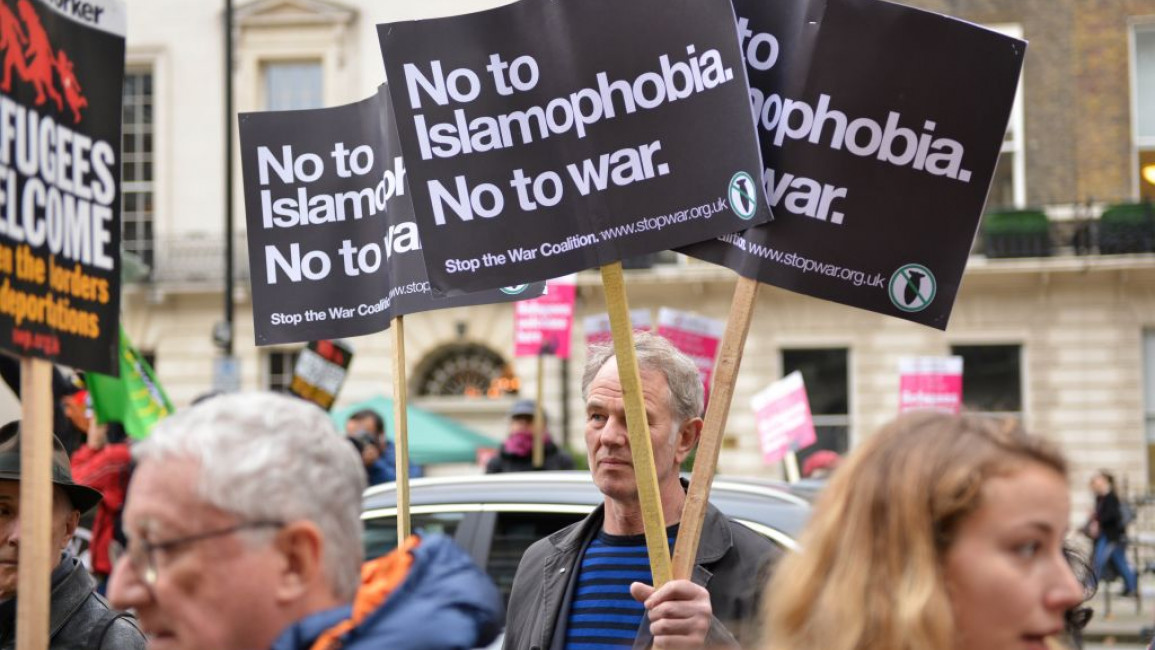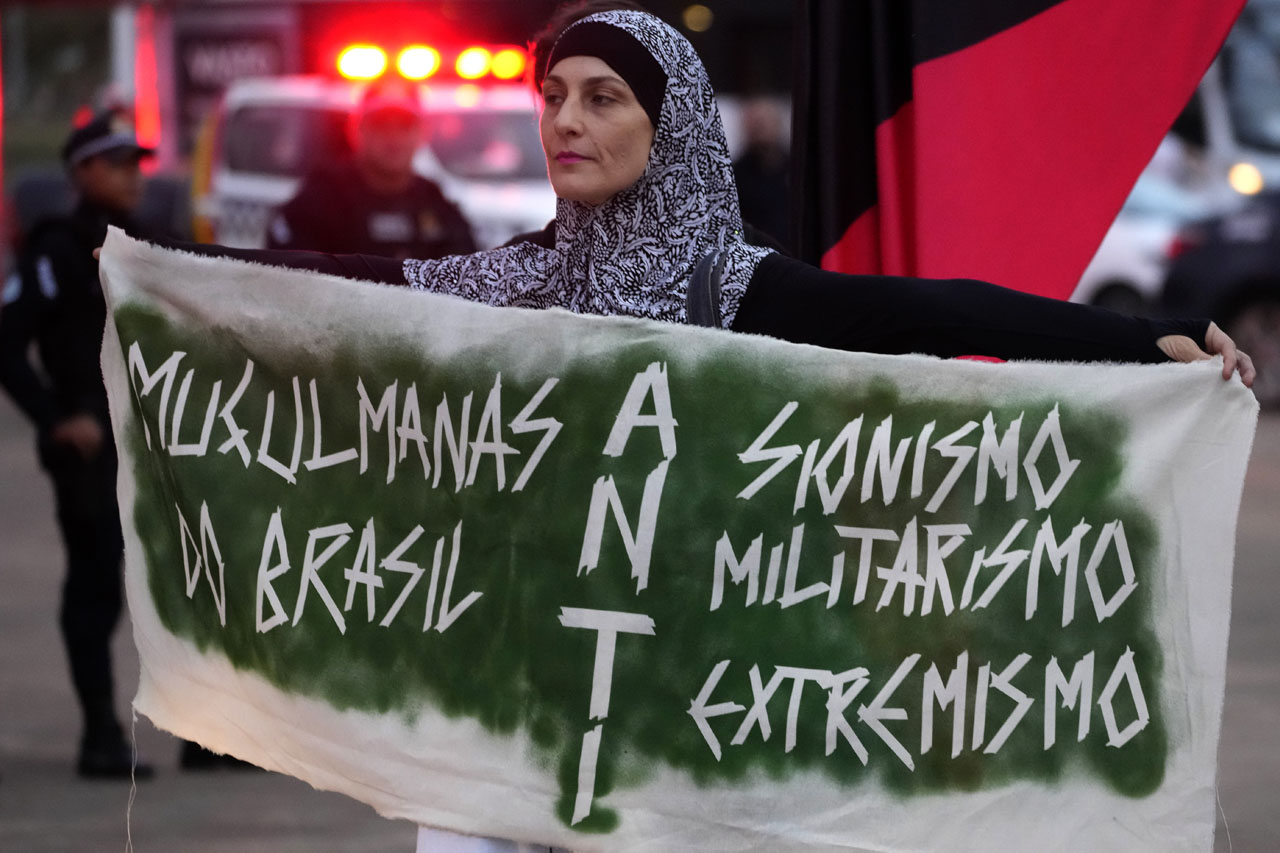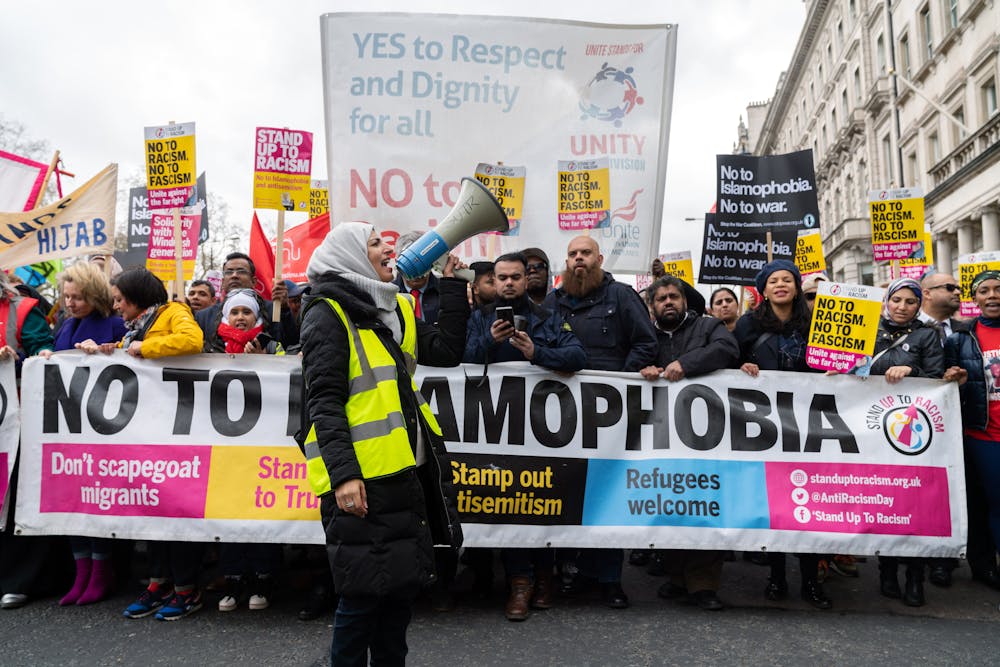How the Gaza War Doubled Discrimination and Racism Against Muslims in Europe

“Muslims across Europe face discrimination in access to housing.”
According to a new survey, one in two Muslims in Europe has experienced discrimination based on their religious beliefs in the past five years.
The survey indicated that following the Israeli war on Gaza, which caused a great polarization in public opinion, discrimination against Muslims in Europe reached its peak, as Muslims faced racist discourse that dehumanized them.
Official data showed that anti-Islam crimes in Germany more than doubled in 2023, with nearly one in 10 incidents involving violence, according to the German Alliance against Islamophobia and Discrimination against Muslims (CLAIM).
Austria and other EU countries have also reported similar trends while racism and intolerance are on the rise in France, due to the war in Gaza and far-right ideas in public debate, according to the French National Consultative Commission on Human Rights.
The Muslim Council of Britain (MCB), the UK's largest Muslim umbrella organization, has also monitored an unprecedented rise in hate crimes against Muslims, and has sounded the alarm that the situation could get worse.
Racism and Discrimination
Muslims in Europe have been living a difficult reality in recent years, due to the dramatic rise in Islamophobia and racial discrimination targeting them.
As the Israeli war on Gaza continues, which represented the peak of the rise of racist rhetoric against Muslims in Europe, a report by the EU Agency for Fundamental Rights (FRA) stated that 47% of Muslim respondents between October 2021 and October 2022 in 13 EU countries said they had experienced discrimination over the past five years.
This is a significant increase compared to similar surveys in previous years; In 2016, that figure was 39%.
In Austria, where the anti-immigration Freedom Party has emerged as the most popular party, 71% of Muslims said they had recently experienced racism.
In Germany, where the anti-immigration Alternative for Germany party is gaining strength, 68% of Muslims reported experiencing discrimination.
Not all European Muslims are affected by Islamophobia in the same way, with people from sub-Saharan Africa more likely to experience discrimination, as are young Muslims born in the European Union, as well as women who wear hijab and religious clothing.
The report added that European Muslims are most often victims of discrimination when looking for work, with 39% saying they had experienced discrimination in getting a job, and 35% saying they had faced discrimination in their workplace.
European Muslims also face discrimination in access to housing, with 35% unable to buy or rent a home due to discrimination, compared to 22% in 2016.
As for health services, Muslims are twice as likely to have their medical needs not adequately met, the report said.
In addition, European Muslims face increased police violence due to their migrant or ethnic background, with 27% of Muslims saying they had been stopped by police as part of an identity check in the past five years.
In France, 25% of Muslim respondents reported being arrested in the past five years, with 44% believing they had been arrested as part of an identity check.

FRA Director Sirpa Rautio expressed his regret at the alarming rise in racism and discrimination against Muslims in Europe.
FRA spokesperson Nicole Roman, also commented on the report's findings in statements, saying: “The data collected shows how it has become increasingly difficult to be a Muslim in the European Union.”
Muslims are the second largest religious group in the European Union, numbering 26 million people, according to the latest Pew Research Center census conducted in 2016, or 5% of the total population of the 27-nation bloc.
An independent German commission concluded in a report issued last June that the increasing discrimination Muslims suffer in German society justifies taking concerted action to combat hatred and prejudice against them.
The commission considered Muslims to be one of the most pressured minorities in Germany, and issued recommendations to political leaders, the police, teachers, the media, and the entertainment sectors.

Anti-Muslim Sentiment
In the same context, hatred of Muslims in the UK more than tripled in the four months following Israel’s genocidal war on Gaza on 7 October 2023, and developments in the Middle East, says the charity Tell Mama UK.
The organization documented 2,010 Islamophobic incidents between October 7 and February 7 – a significant increase from the 600 incidents it recorded for the same period in 2023, according to Eureporter.
“We are deeply concerned about the impact of the war in Gaza on hate crime and social cohesion in the UK,” said Iman Atta, the director of Tell Mama UK.
“The 7 October attacks had led to a backlash against British Muslims, with hate incidents particularly targeting Middle Eastern communities, people who are visibly Muslim,” she added.
“Anti-Muslim hate is a cancer, it is a hate that needs concerted action to challenge it, and some politicians do not even speak about it,” Atta said.
Peter Hopkins, a professor at Newcastle University, said Muslims in Britain were unable to report incidents of racism, discrimination and hostility to the authorities for various reasons, which could result in these crimes not being accurately reported in official statistics.
He noted that there are police officials who have different views on anti-Muslim sentiment, adding that some police officers record complaints from Muslims as legal facts rather than crimes committed for religious reasons.
“Muslims do not really trust the system, and people who perceive that the police are institutionally racist believe that they will not be listened to or taken seriously when they report a racist or anti-Islamic hate crime,” he said.
Noting that the rise of the far-right in Britain has led to an increase in anti-Muslim sentiment, Hopkins said that traditional media and social media have also fueled this increase.
Large numbers of Muslim communities in Britain are living in a state of anxiety and fear, due to what they call inflammatory rhetoric against them by right-wing media, far-right activists, and some politicians and officials, which has increased following the Israeli aggression on Gaza.
According to the UK Office for National Statistics (ONS), the number of Muslims in England and Wales has increased by 1.2 million over the past ten years, bringing the Muslim population to 3.9 million in 2021.

Islamophobia
Last March, the UN General Assembly approved a draft resolution on steps to be taken to combat Islamophobia.
The draft resolution, which was voted on to coincide with the International Day to Combat Islamophobia, was supported by 115 countries, neutral by 44 countries, and no countries opposed.
Among the neutral countries were: France, Britain, Germany, Italy, Greece, Sweden, Switzerland, Finland, and Ukraine.
The resolution includes condemning publications and posts that encourage discrimination, violence, and religious hatred in all forms of media, as well as religious intolerance, stereotypes, and hostility towards Muslims.
The resolution then called on UN Secretary-General Antonio Guterres to appoint a UN Special Representative to Combat Islamophobia, but this has not been implemented so far.
It also called on Member States to take all necessary measures, including steps to be taken in the legal and political fields, to combat religious intolerance and violence against Muslims.
In 2022, March 15 was declared the International Day to Combat Islamophobia by the UN General Assembly following a draft resolution submitted by Turkiye and Pakistan on behalf of the Organization of Islamic Cooperation.

Also in the same year, the Committee on Equality and Non-Discrimination of the Parliamentary Assembly of the Council of Europe (PACE) confirmed that there has been a continuous increase in manifestations of Islamophobia, which has reached a dramatic peak in recent years.
It noted that Muslims are stereotyped as being alien to European culture and values and incompatible with them, which leads to further stigmatization and exclusion, calling for the need for action plans against racism and discrimination to include confronting and addressing Islamophobia in particular.
Sources
- Muslims in Europe face ever more racism and discrimination
- Record amount of anti-Muslim abuse reported in UK since 7 October attacks
- Religious hate crimes in England and Wales are at a record high – but many still go unreported
- General Assembly Adopts Resolution Condemning Anti-Muslim Violence
- Raising awareness of and countering Islamophobia, or anti-Muslim racism, in Europe










